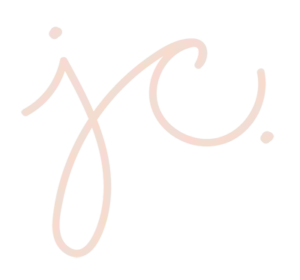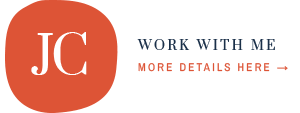Subscribe On:
Full Transcript:
I’m actually preparing for my first non-marketing presentation. And I gotta be honest you guys, I geek out on marketing so much, I love marketing, I love teaching marketing, it’s one of my favorite things. I also like to teach productivity, I mean you guys know this, you’re podcast listeners who know the kinds of things I love to talk about.
But Brandon and Kaelin who are the owners of LadyBoss invited to speak at their event in October in Chicago. 2000 women, none of them, not none of them, I’m sure many of them are business owners, but most of them are there because they’re looking to lose weight and love themselves in the process. So it’s not a marketing conference, not a business conference, so I get the opportunity to speak on something that isn’t necessarily business related.
So I’m really, really excited. In fact, I spent all day yesterday working on my presentation, and I thought you know what, you guys, I’m going to test some of my material on you first because this is the first time I’m actually publicly speaking about a lot of this. And I chose a topic that’s near and dear to my heart, and it’s going to be called “Feel the Fear and Do it Anyway”.
And you know, it’s funny, if anyone had told me five years ago that I’d be comfortable speaking in a room, to a room of thousands of people on the topic of fear, I probably would have given some very serious side eye. Because I feel more fear than the average human. Most of my fear is felt in the form of anxiety and worry, I’m sure many of you can relate to that. But fear has really been a side kick of mine since I was a very small child.
n fact, I remember, earliest memories, age 5, 6, 7 years old doing things that most 5, 6, and 7 year olds don’t do. Things like taking down my curtains because they would drape on top of the heaters, and I was afraid they’d catch fire, so I would take my curtains down. Or remember those little fire fighter stickers that you put on bedroom windows, I would make sure that there were fire fighter stickers on my bedroom window, on my siblings’ and also my friends’. I memorized bus routes home from school because if we ever had a substitute bus driver I wanted to make sure he got me home safely. Just stuff like this.
I mean, I could go on for hours with these little stories of how fear really plagued my childhood. But I guess that’s all to say I know what it’s like to live every day with a sense of anxiety, fear, and worry. And I think I’ve been pretty public, even on this podcast, that for some of my adult life, I was actually on anti-anxiety medication because my anxiety got really bad at several points in my life, relating to having children and toxic relationships and things like that.
So I know it really well, and I’m not someone who doesn’t get it. I sometimes hear people talk about fear and worry and anxiety and I can tell that they’re a natural personality type of person that doesn’t feel anxiety very often. It’s not that they don’t feel it, because we all feel it, right, we’re human and that’s part of the human experience, but you can tell they’re not characterized by it. Versus the kinds of people who are really characterized by fear and anxiety, and there’s a big difference.
So I preface all of this by saying, I feel like I am an expert on this topic, because I’ve lived with it my entire life and I’ve learned methods of coping with fear and anxiety, and I’ve had some pretty significant, what you’d call traumatic events that you know, while I still live a very privileged life compared to a lot of the world, I’ve had enough traumatic events in my life to be like, yeah I have some really good coping skills.
So the good news is, and this is one thing that I’m really excited about, is there is some amazing news about people who are afraid and about people who have a lot of anxiety. And sometimes people know this, and sometimes they’re like, ‘Oh my gosh, I didn’t think of it like this.” But without fear there can be no courage. So courage is the attribute of facing your fear and living through it. That’s what my whole presentation is going to be on. Feel the fear and do it anyway. And that’s ultimately the way you conquer fear, is by moving through it.
So the people that get scared more often, get worried more often, have more anxiety, they actually have more opportunity to show courage in their life. They exercise the courage button more frequently because it’s not courageous to do something if you’re not afraid of it. And I always use this example, my son, kind of a scaredy-cat when it comes to rollercoasters, and again, this was a fear of mine. I am an example of someone who felt the fear and did it anyway, and learned to really like rollercoasters. So I would say to him, “Listen, I am waiting in line for this rollercoaster and I’m scared to death, I feel like I’m going to vomit. My friend or whatever, husband, sibling, next to me is not afraid at all, they’re super excited. Who is the one getting the opportunity to show courage standing in line? If you’re not afraid there’s no need to be courageous. The person who’s afraid and still walking on that line towards the rollercoaster, even though they feel like they’re going to wet their pants and throw up at the same time, is actually exercising the muscle of courage.”
So I feel like basically spreading the good news that if you are the kind of person who is a worry wart or fear based, you actually have the opportunity to strengthen your courage muscle more than other people. So I would say, you’re one of the bravest people on the planet. And I feel like a very, very brave, courageous person because I faced a lot of fears, fears that maybe some people would think are silly.
So I have basically 5 lessons about fear that I think I’m going to use for this presentation, and for those of you guys who are listening, the cool thing about this topic is that whether you’re dealing with life issues or you’re dealing with business issues, fear is still an emotion that we all feel in both those experiences. So probably what I’m going to do, for the next 5 episodes I’m going to teach the 5 principles that I’ve learned about fear. So I’m not going to go through it all now because I’m already 7 minutes into a podcast. I try to keep them less than 15 minutes if possible.
Anyway, so there’s 5 lessons about fear that I’ve learned over the last decade. So here they are, the first one is leveraging logic when emotions can’t be controlled. So I will go, that’s probably something I may have already talked about on the podcast, but this idea of when your emotions are out of control, it’s very, very difficult to feel your way through decisions. And if you are a feeling type personality, you often make decisions with your feelings, and when your feelings are out of control, you’re lost and you don’t have another way to make good decisions. So this is really about leveraging logic when emotions can’t be controlled. So that’s the first thing that I’ve learned and I have a whole thing about it.
Then number two, a bad day is still only 24 hours, and this is sort of a perspective exercise that you do when things are really bad. The third thing is called the magical mystery of state change, and I know Tony Robbins and lots of people talk about how changing your state can actually help fear and anxiety. One of the most, probably obvious examples of this is when you’re depressed, they say that exercise can change your state and release endorphins and make you feel happier. So I’m basically teaching people the magical mystery of state change that I used with fear and anxiety, and it’s not exactly what you think. It’s a really funny story, so I’ll get into that.
Then the fourth thing is understanding the difference between good and bad fear. Because there is the fear or the terror of something terrible happening, but then there’s also fear that comes along that is still unpleasant and still uncomfortable, but it’s actually pushing you towards something good, not something bad, and how do you understand when that feeling is a good fear signal or a bad fear signal. And honestly in business, I think this one, the understanding the good versus bad fear, is really important. Because I remember when I made the decision to step down from Clickfunnels, I felt a tremendous amount of fear about that decision, in fact, it paralyzed me. But the fear I had to unpack is that fear of something terrible is going to happen to me, or was it fear that was really pushing me out of my comfort zone into a bigger, better unknown, a place that I really needed to go.
And then the fifth one is weakness inverted, and actually using fear to your advantage. So those are the 5 things that I’ve learned over the last decade, and I want to go deep inside each one. So if you guys are cool with it, I’m going to wait until this is published, and I would love for you t please a review on my podcast about what you think of the things I talk about. I would say I talk about marketing, and business, but if you are enjoying this podcast and you want me to dive deep into my presentation in October for these women and go through these 5, the leveraging the logic, the bad day that’s only 24 hours, the magical mystery of state change, the difference between good fear and bad fear, and weakness inverted, using fear to your advantage, let me know by leaving me a review or sharing my podcast. Because I would love to go deep into this, if this is something you’re interested in.
So I hope you guys have an amazing day. I would really encourage you if you are immersed in one particular market, relationships, business, health, it’s actually kind of fun to step outside of it for a little while, exercise a different part of your brain. That’s what building this presentation has been doing for me. It’s been really exercising other parts of me that I actually want to kind of explore deeper. So have a great week, talk to you soon.









0 Comments